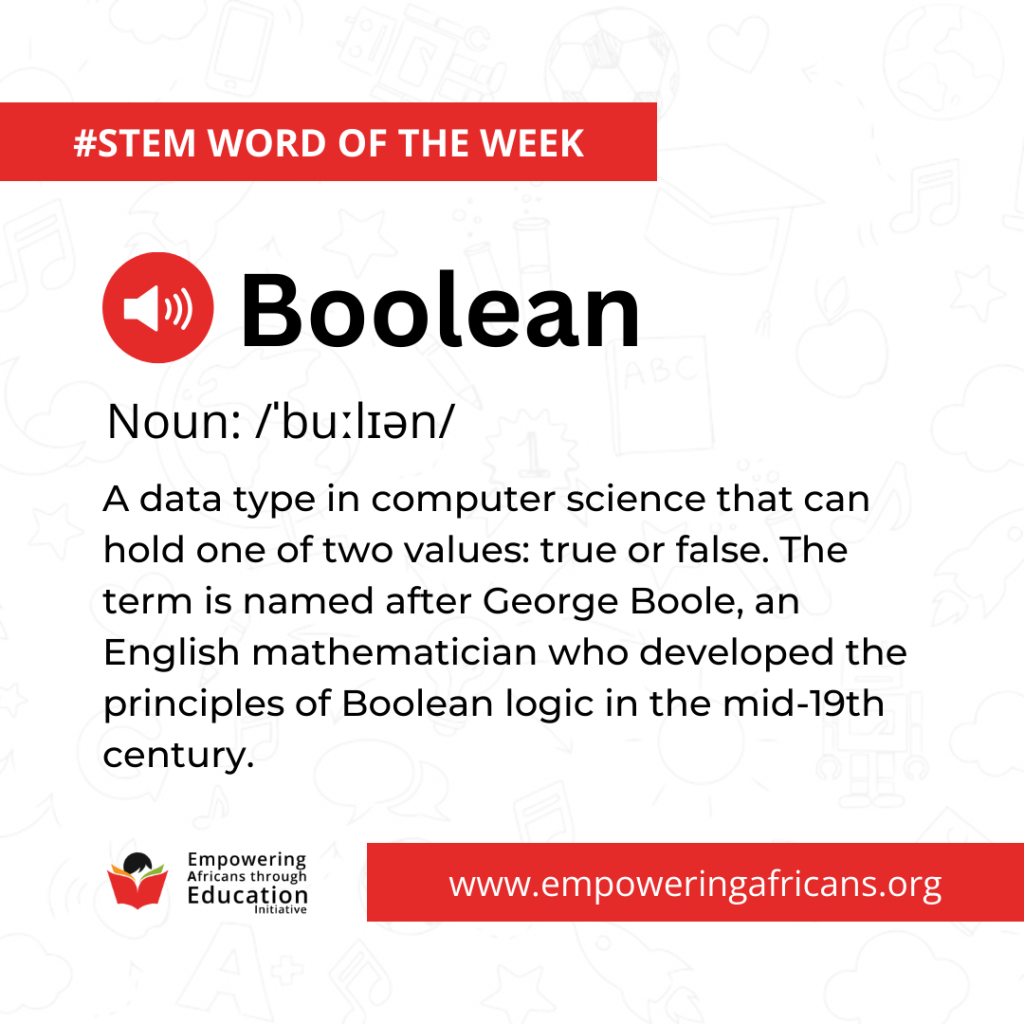STEM Word of the Week: Boolean

STEM enthusiasts, let’s explore this week’s word: Boolean! This foundational term powers modern technology and is integral to various STEM fields, particularly computer science, mathematics, and engineering. So, what is Boolean all about, and why is it significant?
What Is Boolean?
The term Boolean comes from the mathematician George Boole, who developed Boolean algebra in the mid-19th century. At its core, Boolean is a system of logic that deals with true and false values. These binary values are the building blocks of decision-making processes in both mathematical logic and computer science.
Boolean in Computer Science
In programming, Boolean logic is used to make decisions based on conditions. These conditions are evaluated as either true or false, influencing the flow of a program. For instance:
- If you set a condition like age > 18, it evaluates to true for someone 19 or older and false otherwise.
Boolean expressions utilize logical operators such as:
- AND (&&) – Both conditions must be true.
- OR (||) – At least one condition must be true.
- NOT (!) – Reverses the truth value.
Real-Life Example: Boolean in Action
Imagine you are building a program to grant website access. You might write a condition like:
if (user_logged_in AND password_correct):
grant_access()
else:
deny_access()
Here, both conditions must be true for access to be granted. This logic ensures a secure system.
Boolean in Everyday Life
Boolean logic isn’t confined to computers. We unknowingly use it in our daily lives. Consider these examples:
- Shopping Decisions:
“I’ll buy the dress IF it’s on sale AND fits me well.” - Planning Activities:
“We’ll go to the park IF it’s sunny OR the rain stops.” - Password Authentication:
When logging into your favorite apps, Boolean logic ensures your details match before granting access.
Why Boolean Matters in STEM
Boolean logic is the foundation of digital circuits, search engines, and programming languages. It’s what allows computers to perform complex tasks by breaking them down into binary decisions. Fields like data science, artificial intelligence, and robotics heavily rely on Boolean principles to analyze data, automate processes, and improve efficiency.
Fun Fact: Boolean in Search Engines
Ever used search operators like AND, OR, or NOT while googling? That’s Boolean logic at work! For instance:
- Searching for “STEM AND education” shows results containing both terms.
- Searching for “STEM NOT mathematics” excludes results with “mathematics.”
How Can You Learn Boolean Logic?
Start simple! Experiment with Boolean logic using basic programming tools like Python, Scratch, or Blockly. Many online platforms, including Coursera and Khan Academy, offer free courses on logic and programming.
Boolean logic is everywhere—from the way computers run to how we think and make decisions. Understanding it unlocks deeper insights into how technology shapes our world. So next time you encounter a “true or false” scenario, remember—you’re applying Boolean logic!
What do you think about this STEM word of the week? Share your thoughts or Boolean-inspired projects in the comments!